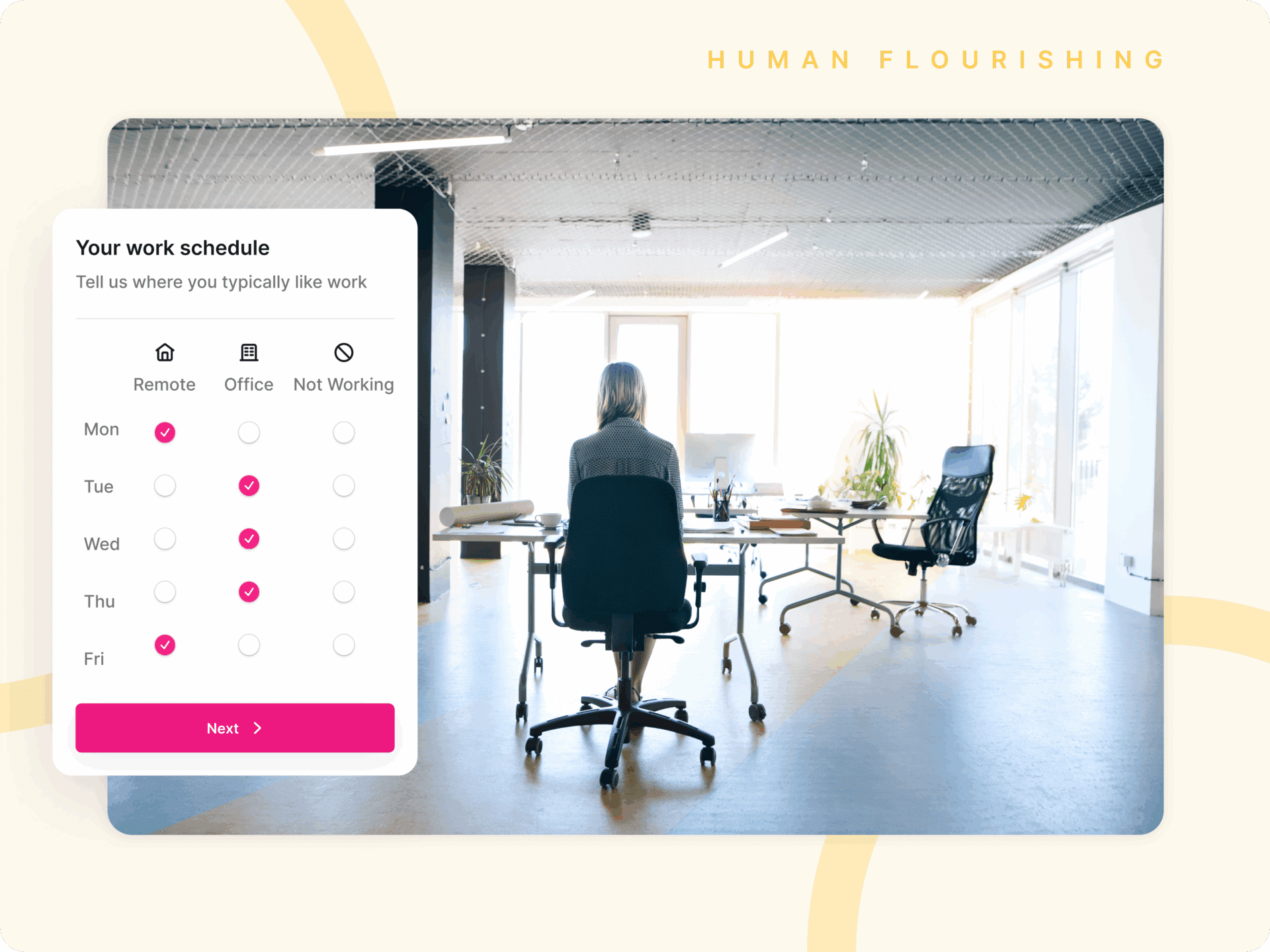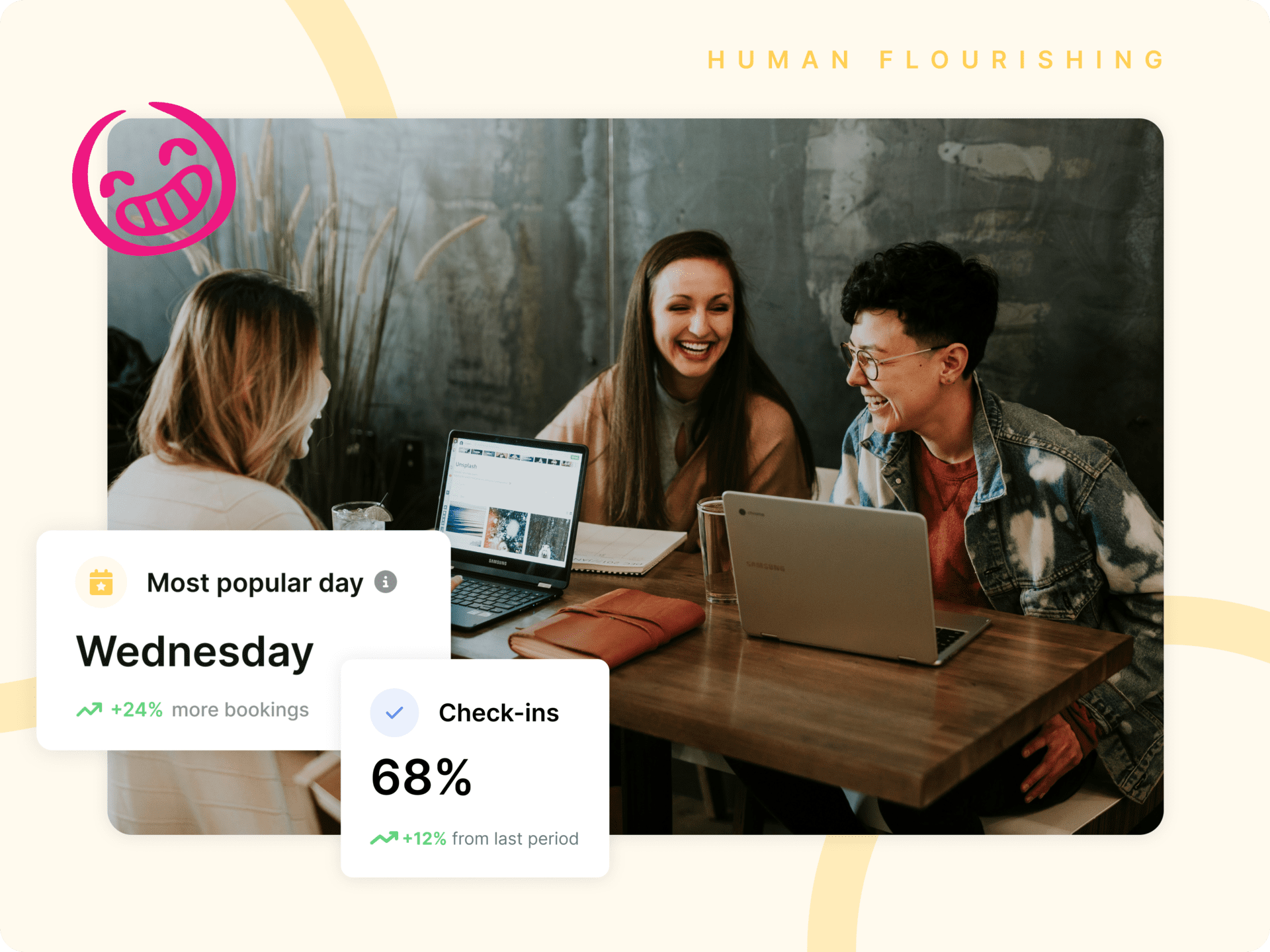Is your company moving towards a hybrid model of work? Are you worried how you can ensure employee productivity when they are not in the office?
HR managers find themselves at the forefront of delivering success when companies move to the hybrid model. There are natural concerns about:
- optimising productivity
- ensuring policy compliance
- inspiring office attendance
- retaining company culture
These can feel daunting as companies embrace flexible working. However, the key to success might not lie in traditional notions of productivity. Flexible working advisor, Brian Elliott, told us how in his years working for and with hybrid companies, success has been found in redefining the outcomes.
Navigating The Hybrid Policy Conundrum
Hybrid work policies are becoming the norm, with employees splitting their time between home and the office. Let’s be clear: leaders are worried about how they ensure employees are productive with the time they have. HR managers grapple with the task of ensuring compliance with these policies.
Instead of enforcing rigid rules, focus on cultivating a culture of trust and flexibility. Trust empowers employees, fostering a sense of loyalty that transcends physical boundaries. Rather than scrutinizing every minute of remote work, shift the emphasis towards measurable outcomes.
By setting clear expectations, employees are encouraged to manage their time efficiently. This results in increased autonomy and accountability. This not only reduces the need for micro-management, but also promotes a healthier work-life balance.
Motivating Office Time Beyond The Winter Blues
The winter months can cast a chill over employees’ enthusiasm for commuting to the office. HR managers face the challenge of motivating the workforce to step out of their cozy home offices.
Rather than relying on traditional incentives, consider the intrinsic motivations that drive employees. Create a workplace environment that encourages group work, innovation, and social connection. Highlight the benefits of face-to-face interactions. Emphasize the value of in-person collaboration for creativity and team dynamics.
It’s more than just inspiring employees to attend the office. They want to have their own motivations for coming into the office. You don’t need to persuade your teams, if they already feel compelled to join.
Allow employees to choose office days when they feel the most productive. This acknowledges personal needs and ensures that the office remains a vibrant hub of activity. As a knock-on effect, each employee will have fonder memories of the office. It’s likely they will want to come back.
Retaining Company Culture In A Hybrid World
Company culture was once nurtured within the confines of a physical office space. HR managers must preserve its essence, while employees navigate a new work model.
Rather than fixating on physical proximity, emphasize shared values and goals that transcend location. Be inclusive. Leverage technology to bridge the virtual divide. Consider virtual team-building activities, regular town hall meetings, and collaborative projects. These can strengthen the bonds among team members.
Solutions like Hybrid Work Management Software help ease your team into being apart and can help them organize their time. Their team will know when everyone is in the office or remote, without the need of fussy spreadsheets that cause frustration.
Encourage open communication channels. Ensure employees feel heard and valued regardless of their physical location. Grow a community in teams. This cultivates a resilient company culture that permeates from each team and thrives in both physical and virtual spaces.
Outcomes Over Metrics
Metrics like revenue per employee or hours worked can lead to a myopic view of productivity. HR managers must recognize that the true measure of success lies in the outcomes produced, not just the inputs.
Shift your mindset from tracking every minute to assessing tangible results. Instead of micro-managing remote hours, concentrate on the quality and impact of the work being produced. Allow employees the freedom to choose when and where they work best. Trust that they will deliver results.
In a results-oriented approach, employees are empowered to take ownership of their work. This autonomy not only enhances job satisfaction, but also promotes creativity and innovation. Break free from outdated metrics and employees will be motivated by the desire to achieve meaningful outcomes.
And when looking at metrics, look at your team’s retention rate. That will give you an idea on whether your team are happy or not. That will give you a sense of whether they have the incentive to be productive.
Breaking Free From Traditional Terms
The companies that succeed at hybrid work are those that fully embrace flexibility. The term ‘hybrid’ suggests that there is mandated office time. Brian prefers to think of companies working flexibly.
The terms “hybrid”, “productivity”, and “remote” are laden with preconceived notions. These may hinder the true potential of flexible work. It’s time for HR managers to embrace a more dynamic and inclusive vocab.
Rather than focusing on hybrid work policies, consider adopting a “flexible work culture.” This shift emphasizes adaptability and responsiveness to personal needs. Avoid fixating on productivity. Prioritize impactful outcomes and highlight the tangible contributions that make a difference.
Embracing Change: A Call To Action For HR Managers
HR managers must lead the charge in redefining how we perceive and approach work in the modern era. The challenges presented by hybrid work are opportunities. Innovate and create a workplace that thrives in the face of change.
The roadmap includes:
- Designing for Distributed Teams: Tailoring workplaces to the needs of distributed teams. Avoid enforcing top-down mandates.
- Prioritizing Focus Time: Investing in more asynchronous ways of working. Give employees the focus time needed for exceptional performance.
- Leadership Focused on Outcomes: Build leaders who prioritize outcomes over managing like hall monitors. Foster a culture of achievement.
- Investing in Tools and Training: Provide the necessary digital tools and training to support successful remote work. Reimagine workspaces as hubs for connection and teamwork.
HR managers can pave the way for a future where work is not confined by the traditional constraints of productivity. Prioritize outcomes over metrics. Cultivate a culture of trust and flexibility. Inspire genuine connections in the office. Redefine your terms to reflect our new reality.
Success is not measured in hours spent in the office or the number of Zoom meetings attended. It’s about the impact we make, the connections we foster, and the resilient cultures we build. Take the lead and champion a shift that empowers your teams to thrive in the evolving landscape of work.
Brian Elliott, one of Forbes’ “Future of Work 50,” is a speaker and leadership advisor. He combines 25 years of leadership experience as a startup CEO and executive at Google and Slack, while leading Future Forum, a think tank focused on the future of work.
He’s the bestselling author of How the Future Works: Leading Flexible Teams To Do the Best Work of Their Lives, a LinkedIn Top Voice, has been published in Harvard Business Review. Brian is also the proud dad of two young men and one middle-aged dog.




